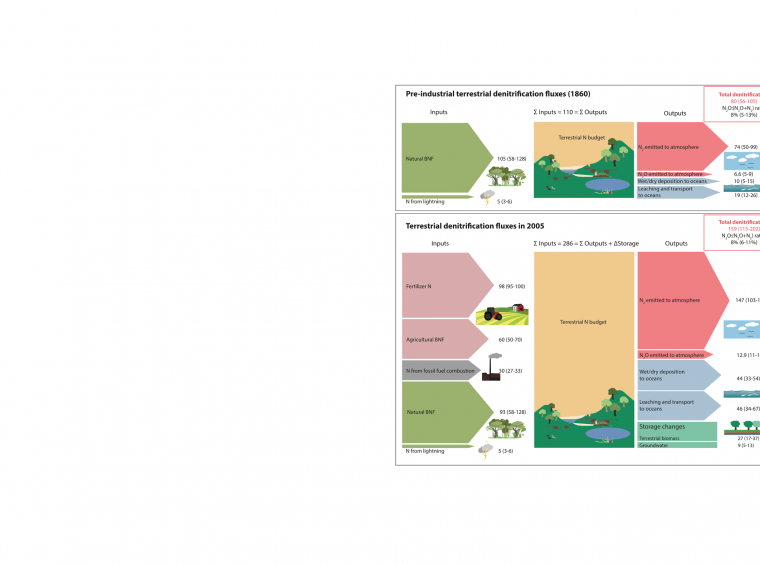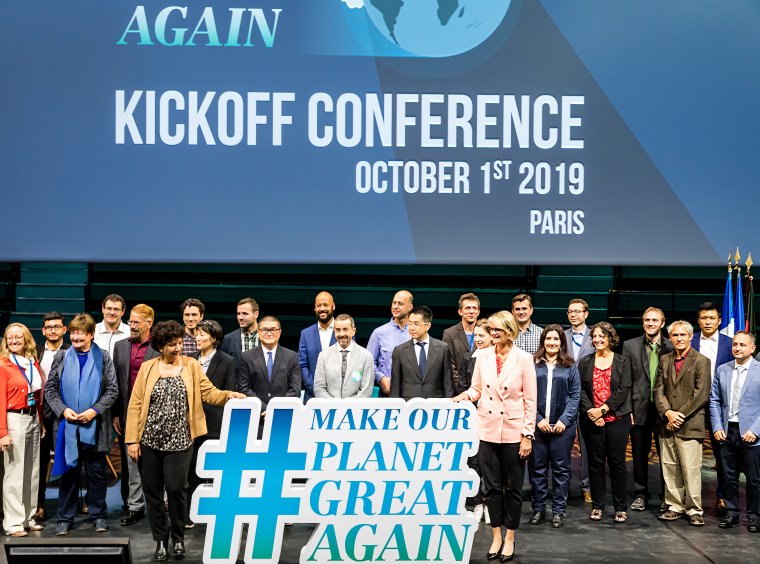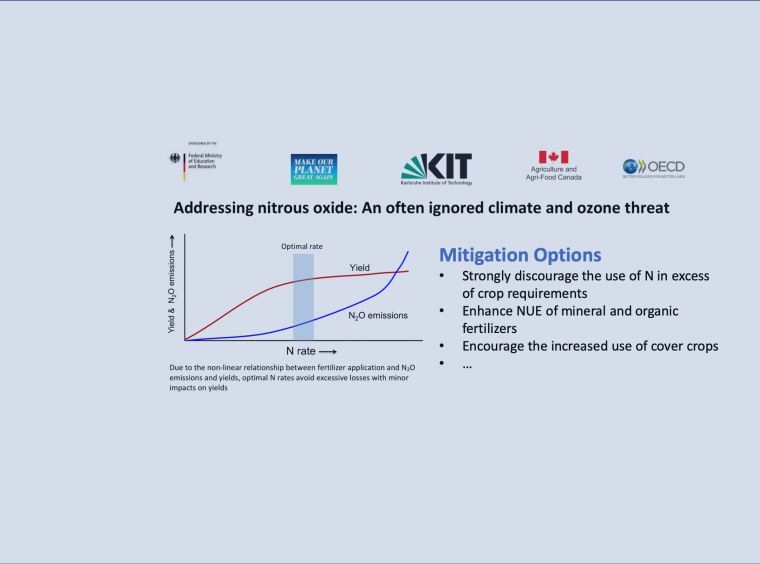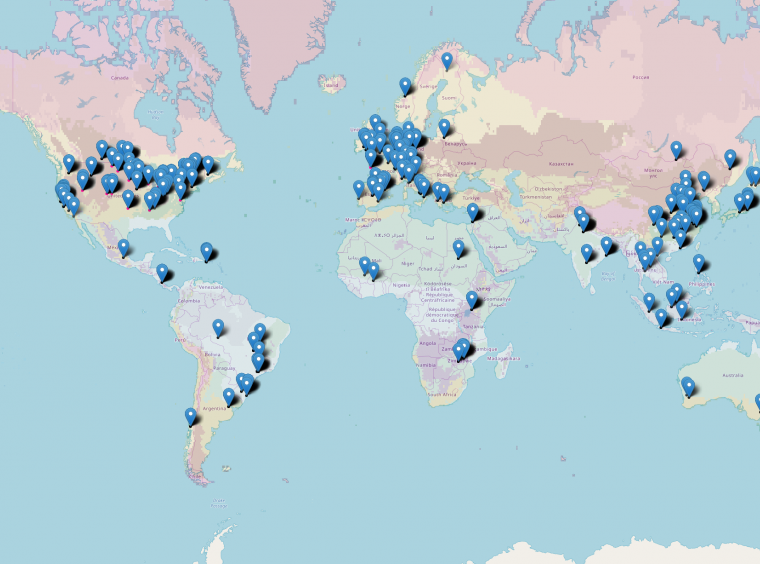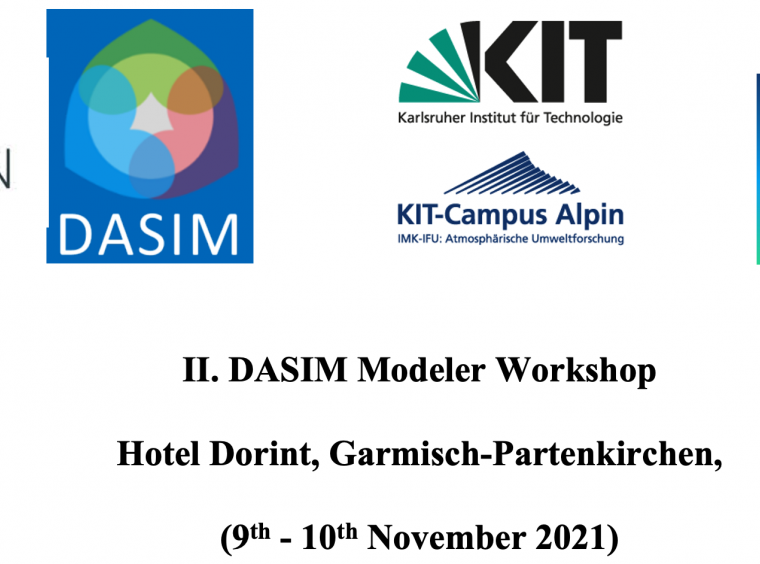
Project
The use of synthetic N fertilizers has grown exponentially over the last century, with severe environmental consequences. Most of the anthropogenic reactive nitrogen (Nr) will ultimately be removed by denitrification. However, estimates of terrestrial sinks for Nr are highly uncertain. Denitrification, the dominant Nr removal process in managed systems, is key for understanding crop nitrogen use efficiency (NUE) and emissions of the potent greenhouse gas (GHG) nitrous oxide (N2O) from managed soils. There is substantial interest in mitigating N2O emissions from agriculture activities as a part of the strategy to combat global climate change, yet methods for estimating N2O emissions from agricultural sources remain highly uncertain. As Nr use and N2O emissions are strongly correlated, there is a high risk that the needed intensification of crop production for feeding a growing and hungry planet, might also result in further increases of global N2O emissions from agriculture.
The project MOPGA-Nr will evaluate the trade-off between crop productivity, N fertilizer use, and GHG emissions of agricultural ecosystems globally and identify the role denitrification plays as N2O source process and as a key parameter negatively affecting crop NUE. This will be done by initializing and establishing a global research network of scientist working on denitrification for agricultural N2O mitigation, establishment of a so far missing comprehensive database, targeted experiments on driving factors of denitrification for understudied systems, and by using the newly developed knowledge to improve and further reduce current uncertainties of model estimates. These models are used as tools to identify feasible, and region-specific strategies for major improvements in food production and NUE with a reduction in N2O emissions.
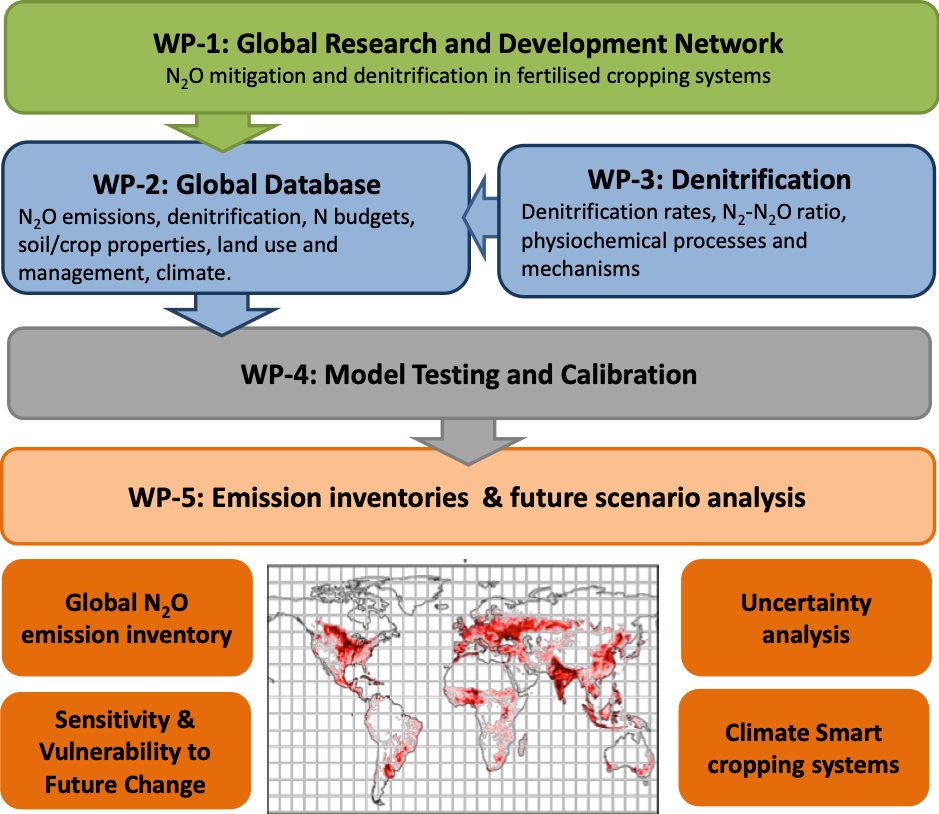
Specifically, we will calculate past, present day and future inventories of agricultural systems for N2O emissions and total N losses on a global scale with state-of-the-art crop-soil models, based on ensemble runs and underlying scenarios, so that emission hot spots and most promising opportunities for GHG mitigation can be identified. This will allow us to predict feedbacks of global change on yields, crop NUE, soil denitrification, environmental N losses and N2O emissions. Our final product will be biogeochemical models ready for national GHG accounting from agricultural soils and region-specific climate-smart management strategies for a sustainable management of global agricultural ecosystems and an assessment of the potential contribution of crop production systems to mitigate global GHG emissions from food production systems, and, thus, to limit climate change.

